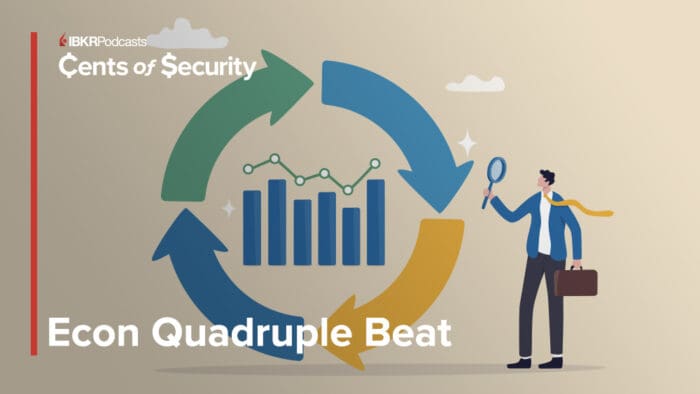Opendoor Technologies (NASDAQ: OPEN) has exploded into the spotlight with a jaw-dropping 200% surge in recent weeks, drawing immediate comparisons to the GameStop (NYSE: GME) phenomenon that captivated retail investors in 2021.
The real estate technology company’s stock jumped another 36.3% on Friday, closing at $2.25, before surging an additional 12% to $2.52 in premarket trading today (at the time of writing).
What started as a hedge fund manager’s bold prediction has quickly transformed into a full-blown retail trading frenzy, with investors flooding Reddit’s WallStreetBets forum and driving options activity to unprecedented levels.
GameStop and Opendoor: Retail Frenzy Meets Short Squeeze Dynamics
The similarities between Opendoor’s current surge and GameStop’s historic rally are striking and deliberate. Eric Jackson, president of EMJ Capital, explicitly drew this comparison when outlining his bullish thesis, stating that betting on Opendoor is similar to betting on Coinbase before FTX’s collapse – a play on market dominance after competitors exit.
Just as GameStop benefited from coordinated retail interest and high short interest creating a perfect storm for a short squeeze, Opendoor is experiencing the same toxic combination of social media-driven enthusiasm and speculative positioning.
In the past 24 hours alone, over a dozen posts citing bullish options plays on Opendoor have appeared on the r/WallStreetBets Reddit page, collectively garnering more than 2,000 comments. This mirrors the GameStop phenomenon where retail traders coordinated through social media platforms to drive massive price movements.
The key difference lies in the underlying business narrative: while GameStop’s rally was largely disconnected from fundamentals, Opendoor’s surge comes amid a legitimate strategic pivot from capital-intensive iBuying to an asset-light, agent-assisted model.
Jackson’s prediction that Opendoor “could be a 100-bagger over the next few years” has provided retail traders with the fundamental thesis they need to justify their speculative positions. Unlike GameStop, which faced an existential threat to its brick-and-mortar business model, Opendoor operates in a massive addressable market with reduced competition after Zillow and Redfin exited the iBuyer space.
OPEN Stock Continues Gains into Premarket Trading Today
Opendoor’s remarkable transformation from a sub-$1 stock to a $2.60 premarket sensation tells a story of dramatic volatility and speculative excess. The company went public via SPAC in December 2020, reaching an all-time high of $39.24 on February 11, 2021, before crashing to under $1 within two years. As of today’s premarket trading, OPEN shares were up 12% to $2.52, bringing the one-month gains to nearly 200% and year-to-date returns to over 40%.
The stock’s financial metrics paint a picture of a company in transition, with a market capitalization of $1.64 billion despite posting negative earnings per share of -$0.52.
Key financial indicators reveal both the promise and peril of Opendoor’s business model: while revenue reached $5.13 billion in the trailing twelve months, the company posted a net loss of $368 million and maintains a concerning debt-to-equity ratio of 391.63%. The stock’s beta of 2.76 reflects its extreme volatility, making it a perfect candidate for meme stock dynamics.
Analyst sentiment remains cautious despite the recent surge. The company’s upcoming earnings report on August 5, 2025, will be critical, with Jackson predicting Opendoor will show its first quarter of positive EBITDA.
However, the stock’s Altman Z-Score of 0.74 indicates significant bankruptcy risk, adding a layer of danger to what many are calling a binary bet on the company’s survival and transformation.
Disclaimer: The author does not hold or have a position in any securities discussed in the article. All stock prices were quoted at the time of writing.
—
Originally Posted on July 21, 2025 – Why are Opendoor’s Shares Surging in Premarket Trading? Some Call it the Next GME
Disclosure: The Tokenist
Neither the author, Tim Fries, nor this website, The Tokenist, provide financial advice. Please consult a licensed financial advisor prior to making financial decisions.
Disclosure: Interactive Brokers Third Party
Information posted on IBKR Campus that is provided by third-parties does NOT constitute a recommendation that you should contract for the services of that third party. Third-party participants who contribute to IBKR Campus are independent of Interactive Brokers and Interactive Brokers does not make any representations or warranties concerning the services offered, their past or future performance, or the accuracy of the information provided by the third party. Past performance is no guarantee of future results.
This material is from The Tokenist and is being posted with its permission. The views expressed in this material are solely those of the author and/or The Tokenist and Interactive Brokers is not endorsing or recommending any investment or trading discussed in the material. This material is not and should not be construed as an offer to buy or sell any security. It should not be construed as research or investment advice or a recommendation to buy, sell or hold any security or commodity. This material does not and is not intended to take into account the particular financial conditions, investment objectives or requirements of individual customers. Before acting on this material, you should consider whether it is suitable for your particular circumstances and, as necessary, seek professional advice.
Disclosure: Short Selling
Short selling is an advanced trading strategy involving potentially unlimited risks and must be done in a margin account.
Disclosure: Margin Trading
Trading on margin is only for experienced investors with high risk tolerance. You may lose more than your initial investment. For additional information regarding margin loan rates, see ibkr.com/interest



















Join The Conversation
For specific platform feedback and suggestions, please submit it directly to our team using these instructions.
If you have an account-specific question or concern, please reach out to Client Services.
We encourage you to look through our FAQs before posting. Your question may already be covered!